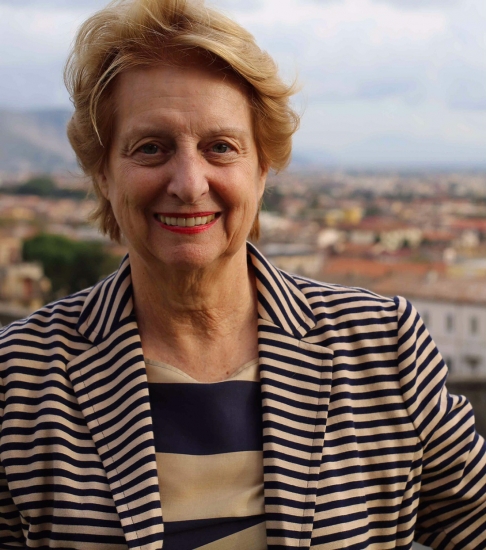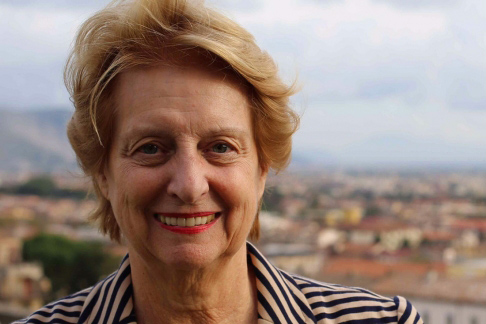
ISUH should collaborate and partner with the General Assembly of Partners and other large organizations to create matching opportunities for members.
Episode Abstract
Professor Birch is trained as a city planner focused on building cities of lasting value. She points out that health is a very important aspect of that value. A community of lasting value is a community in which its inhabitants lead healthy productive lives. Mental health and physical health are equally important for lasting healthy cities. The field of city planning has its origins in public health. The focus on sanitation, water, and housing are among the key issues in neighborhood and city planning.
Professor Birch sees ISUH as having three functions: (1) Convener – bringing together people across disciplines. The population of the people attending the ISUH conferences crosses disciplinary boundaries and dialogue is based on good scientific research and different points of view; (2) A voice for all of the principles that we work out and promote together for good health and good healthy places; and (3) A lab – supporting projects that bring together people to solve problems affecting people in urban environments.
SDG alignment is a definite area around which ISUH can create transdisciplinary dialogue and action by bringing groups together. ISUH can serve a bridge function for engagement at the national level with the agencies that are working on the SDGs and at the local level where projects are modeling and piloting solutions for challenges such as gender health and food and cities.
Engaging ISUH membership in such efforts can be done by identifying spaces within the conferences to create conversations and opportunities for dialog on synthesis across the SDGs, for example. There could be a special issue of the Journal of Urban Health that really dives into how to integrate and synthesize the SDGs – creating opportunities for problem solving and solutions generation. Professor Birch urges ISUH to collaborate and partner with the General Assembly of Partners and other large organizations to create matching opportunities for members.
Guest Bio
Professor Birch is the Lawrence C. Nussdorf Chair of Urban Research and Education. She teaches courses in global urbanization and the doctoral seminar and serves as chair, Graduate Group in City and Regional Planning, co-director, Penn Institute for Urban Research, co-editor, City in the 21st Century Series, University of Penn Press and co-editor, SSRN Urban Research e-journal. With Penn IUR she recently completed a project “Entreprenuership & Innovation in Connecticut’s Higher Education System" for the state of Connecticut.
Professor Birch’s current research focuses on global urbanization with her most recent publications being: Slums, How Informal Real Estate Markets Work, Philadelphia, University of Pennsylvania Press (2016) (edited with Susan Wachter, Shahana Chattaraj); “Metrics and the Impact of the Urban SDG” in Thomas Elquist et al. (eds), The Urban Planet: Patterns and Pathways to the Cities We Want (Cambridge: Cambridge University Press, 2018) with Andrew Rudd, Maruxa Cardama, Aromar Revi, “More than window dressing? Stakeholders and partnerships in the New Urban Agenda” URBANET, January 22, 2018.
http://www.urbanet.info/stakeholders-and-partnerships-in-the-new-urban-agenda/ (longer version is at http://penniur.upenn.edu/publications/penn-current-research-on-sustainable-urban-development ),“Gateways and Portals to the Implementation of the New Urban Agenda: It’s Engagement, But Engagement is Complicated,” in Aliye Celik, Gateway Portals to the City: Infrastructure for Sustainable Urbanization, 2018; “Midterm Report: Will Habitat III Make a Difference to Global Urban Development?” Journal of the American Planning Association 84:4 (Fall 2016); “The Institutions of Metropolitan Governance,” in D.A. Gomez-Alvarzez, E. Moreno and R. Rajack (eds), Steering the Metropolis: Metropolitan Governance for Sustainable Urban Development (Nairobi: UN Habitat, 2017); “Inclusion and Innovation: The Many Forms of Stakeholder Engagement in Habitat III,” Citiscape (July 2017); “Implementing the New Urban Agenda in the United States, Building on a Firm Foundation,” Informationen zur Raumentwicklung (Information on Spatial Development) (Summer 2017).
Professor Birch has been active in the field's professional and civic organizations in the United States and abroad. She is president, General Assembly of Partners (GAP), the engagement platform for the implementation of the UN’s New Urban Agenda and associated global agreements, co-chair, Sustainable Development Solutions Network (SDSN) Thematic Group on Cities, and an Associate Editor, Journal of the American Planning Association. In the past, she has been president, Association of Collegiate Schools of Planning; president, Society of American City and Regional Planning History; president, International Planning History Society; and co-editor, Journal of the American Planning Association. She has been a member of the Planning Accreditation Board, having served as its chair from 2004-2006. She has been a member of the editorial boards of Planning Theory and Practice, Journal of Planning History, Journal of Planning Education and Research and Planning Perspectives. In the early 1990s, she was a member of the New York City Planning Commission, and in 2002, she served on the jury to select the designers for the World Trade Center site. She has chaired the Board of Trustees of the Municipal Art Society of New York and is currently a member of the Board of Trustees of the Regional Plan Association of New York.
Professor Birch lectures widely. She has been Visiting Scholar, Queens University Ontario, Canada; Foreign Scholar, University of Hong Kong and Visiting Professor, University of the Witswatersrand, Johannesburg, South Africa. In April 2018, she delivered the keynote address “The New Urban Agenda: Problems and their Potential Solutions,” at the 4th Planocosmo International Conference, Institu Teknologi Bandung, Bandung, Indonesia. In March, 2018 she delivered “Today’s Global Agreements, on Sustainable Urban Development, From Stakeholders to Partners,” the Dorn McGrath Jr. Annual Lecture in Urban Planning and Geography, George Washington University, Washington, DC. In February 2018, she gave the keynote speech, “Integrated Territorial Approaches to Sustainable Urban Development, at the World Urban Forum9, Kuala Lumpur, Maylasia. In May 2017, she delivered the keynote address, “Making Cities Safe, Inclusive, Resilient and Sustainable,” at the Dresden Nexus Conference, Dresden, Germany; and “Post Habitat III Stakeholder Engagement: An Update" at the Wilson Center, Washington, DC.
The Association of Collegiate Schools of Planning has given her its three awards: the Distinguished Educator Award in recognition of her teaching and research (2009), the Jay Chatterjee Award for Distinguished Service that "recognizes an individual whose exceptional service, actions and leadership have had a lasting and positive impact on the ACSP"(2006), and the Margarita McCoy Award, "in recognition of her outstanding contribution to furthering the advancement of women in the planning academy" (1994). The Society of American City and Regional Planning History awarded her its Lawrence C. Gerckens Prize (2009) in recognition of her contributions to planning history. The American Planning Association honored her with their APA President's Award in 2013. This award is given out every other year in recognition of leadership in the field of planning. In 2000, she was elected to the College of Fellows of the American Institute of Certified Planners and made a member (honorary) of the Royal Town Planning Institute.


